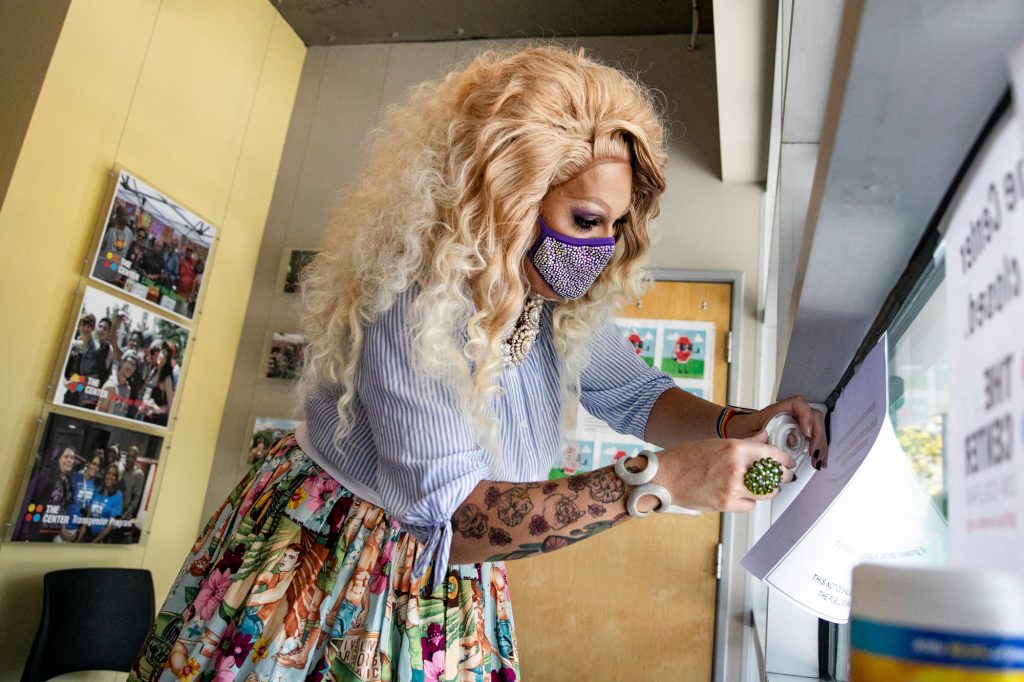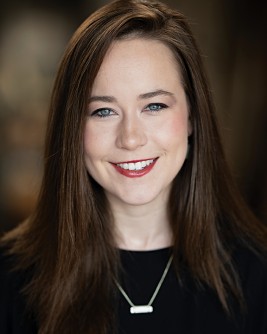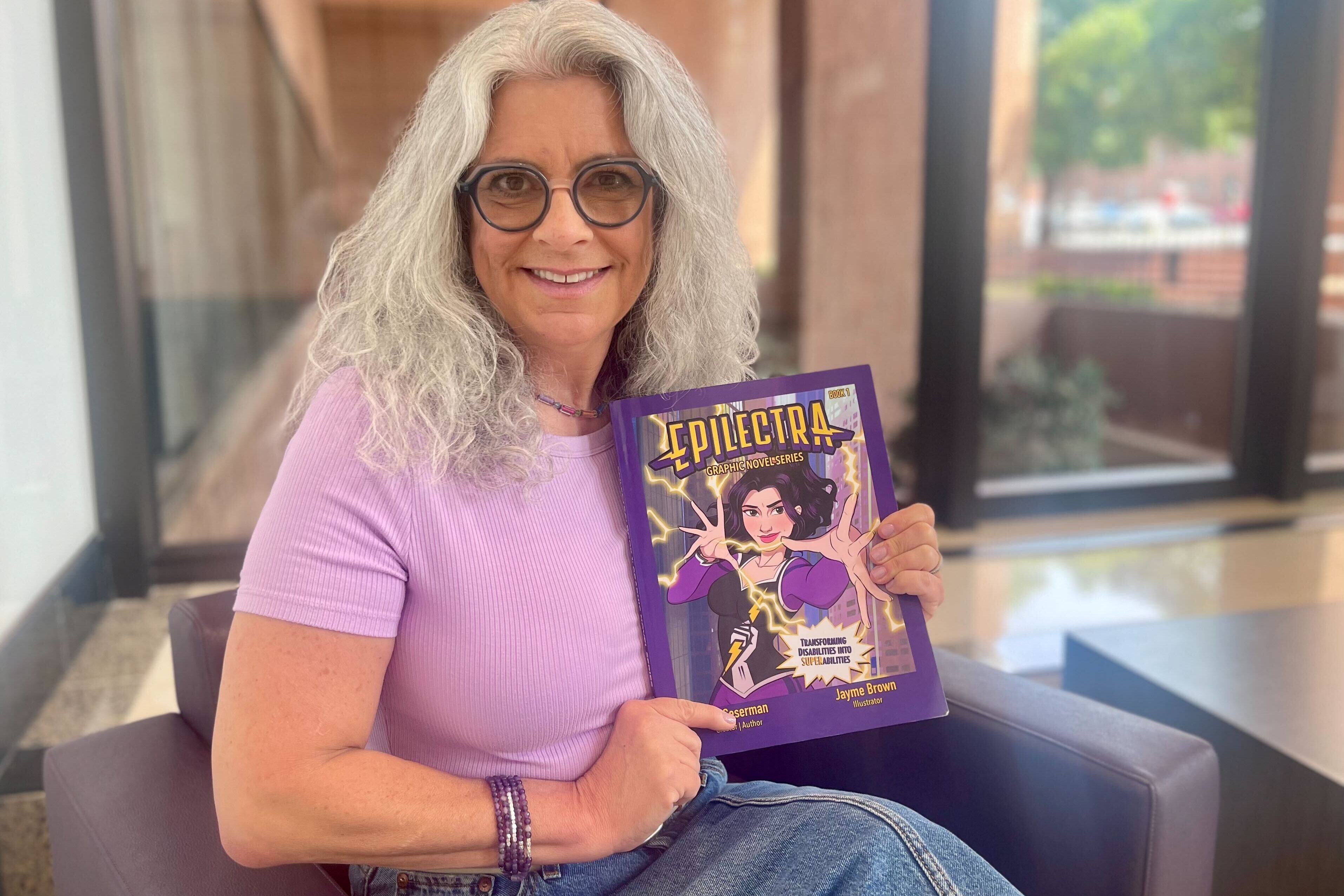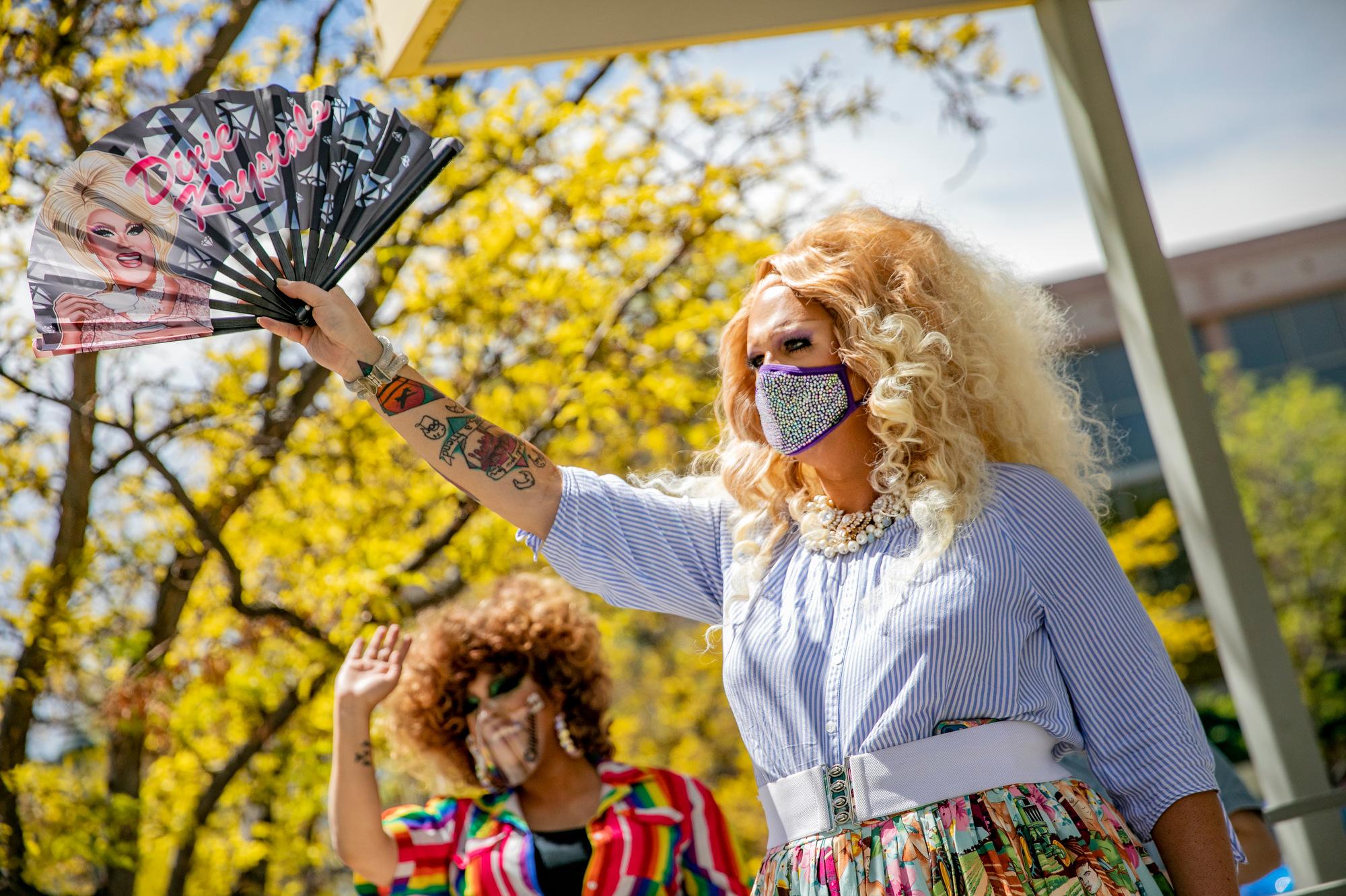
In a bright rainbow dress, high heels, and a towering wig, LaLa Shearz called to people on the sidewalk outside The Center on Colfax, “Hi! Come get vaccinated!”
Next to Shearz, fellow Denver drag queen, Dixie Krystals, fluttered her hand fan. They greeted everyone who came to a pop-up COVID-19 vaccine clinic at the LGBTQ community center at the end of May. They even convinced some people passing by to get a shot.
Drag queens are just one way community organizations, counties, and the state are trying to boost immunization rates as COVID-19 vaccination appointments go unfilled around Colorado and the country.
The state announced today the first winner of Colorado’s Comeback Cash Vaccine Drawing, who took home $1,000,000. All vaccinated people, age 18 and older, are automatically entered, and there will be four more drawings this summer. Students 12 to 17 years old are entered in drawings for college scholarships.
Mesa County is holding its own smaller cash giveaways. Weld County hosted a vaccination clinic at a local brewery that gave free beer to everyone who participated. Another clinic in Fort Collins featured churros and mariachi bands.
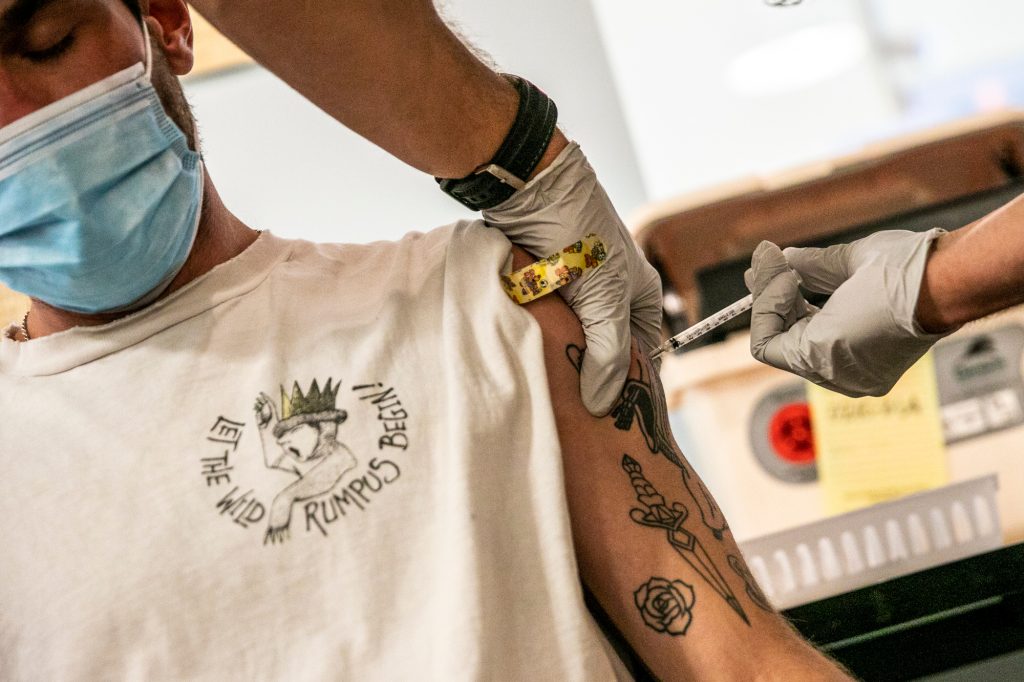
At the LGBTQ pop-up clinic in Denver, Shearz and Krystals said they were there to create a space that felt welcoming and safe.
“Drag queens have always been at the forefront of our communities — politically, socially. A pandemic like this should be no different,” Shearz said.
Jim Leo was visibly nervous before he got a dose of the vaccine. He has autism, and he doesn’t like strangers touching him. He’s also afraid of needles. He said he wouldn’t have been comfortable at a larger clinic at a grocery store or a pharmacy, so he said The Center On Colfax was “the very absolute best place it could possibly have been done.”
“Being a gay person too — the people here, even though they might be bright, they’re still soft and friendly,” said Leo.
Thirty-seven people were vaccinated that day, which may seem like a small number in the face of more than a million Coloradans who still need to be vaccinated in order to reach herd immunity.
The target is about 70 percent vaccination of the population. That way, even if someone did get COVID-19, it couldn’t spread very far. Fewer than half of Coloradans are fully vaccinated.
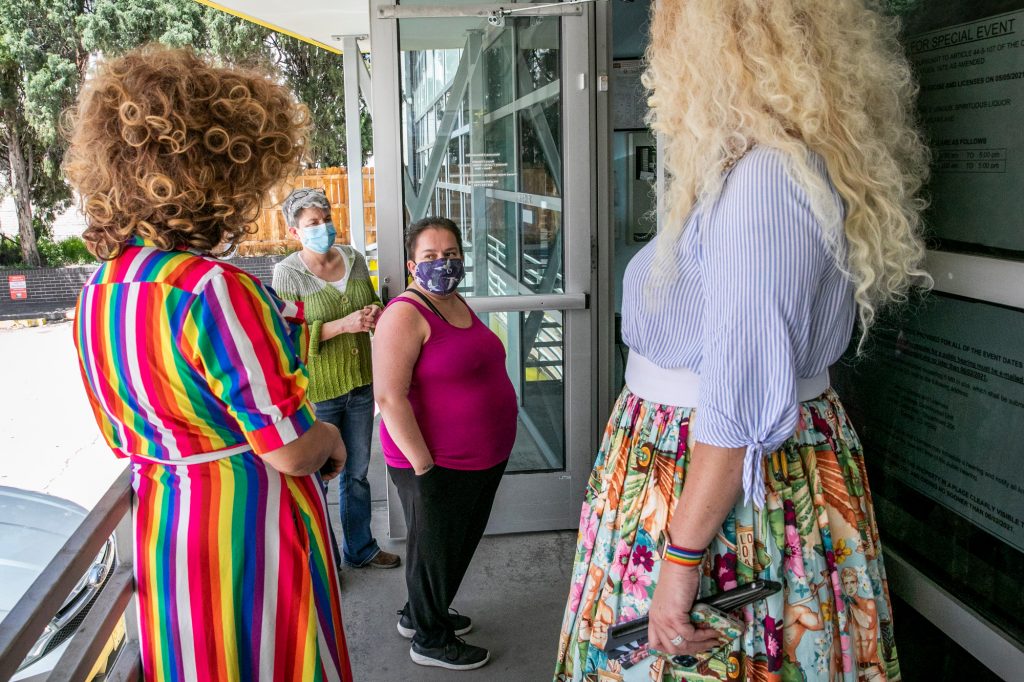
It's unknown how effective these incentives are, but even small vaccine clinics can create a ripple effect.
So how effective are different types of vaccine incentives?
There’s little formal research on non-monetary incentives, like drag queens, mariachi bands, churros and beer, said Glen Mays, who is chair of the Department of Health Systems, Management and Policy at the Colorado School of Public Health. But the good news is he expects even clinics that vaccinate relatively few people will generate ripple effects.
“People who get vaccinated through these kinds of special events, they’re connected to friends and colleagues. And having a friend who’s been vaccinated, having a social contact, who’s been vaccinated, raises those other social contacts’ likelihood of being aware of and ultimately taking up the vaccine,” said Mays.
He also thinks clinics that partner with community organizations can help reach people who don’t engage with traditional news or public health websites.
When it comes to monetary incentives, like Colorado’s $1,000,000 drawings, the reviews from public health leaders are mixed.
Dr. Kevin Volpp is the director of the Center for Health Incentives and Behavioral Economics at the University of Pennsylvania.
He said, “If [people] are at all on the fence in terms of getting vaccinated, or they haven’t gotten vaccinated because they just haven’t gotten around to it, then this kind of incentive could be a very effective way to get people to go get vaccinated.”
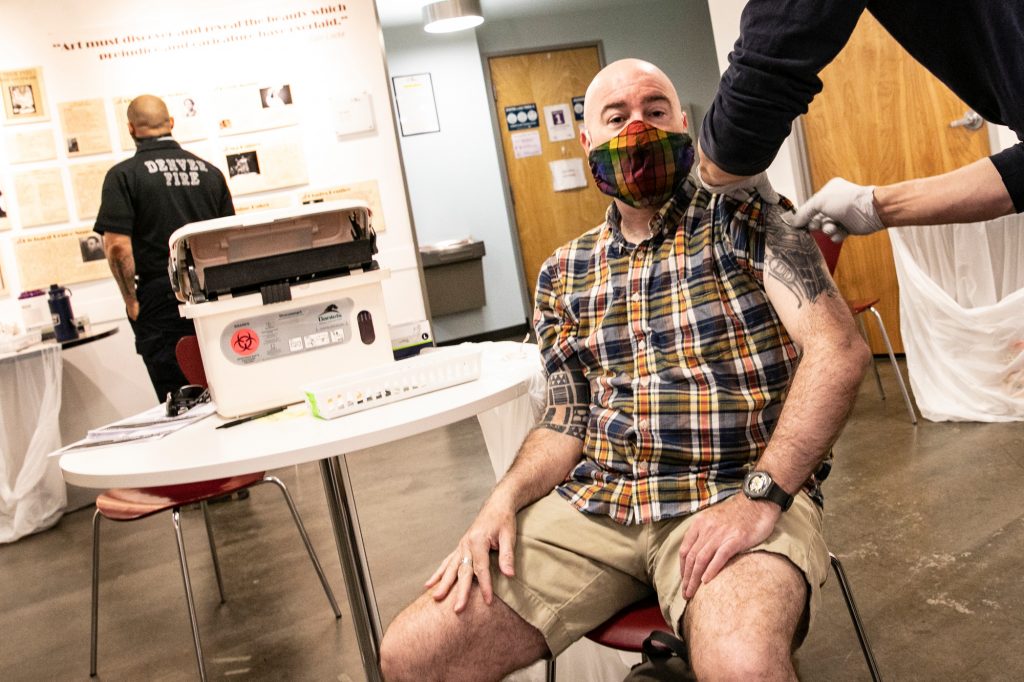
Some experts are worried that financial incentives don't necessarily improve access to vaccines long-term.
What concerns him is that using cash giveaways to encourage immunizations could be a slippery slope.
“If booster shots are needed this fall, this winter and beyond it worries me that then it sets a precedent that people will expect there to be an incentive,” Volpp said.
Some experts and community leaders also worry that offering financial incentives could distract from improving access. Vaccination rates among the most socially vulnerable are lower than the most advantaged, and that gap has doubled since mid-April, when the entire U.S. adult population became eligible for vaccine allocation.
“At that point, the difference between the most and least disadvantaged was 4 percent. Now we are at 8 percent,” said Harald Schmidt, who is a Medical Ethics and Health Policy professor at the University of Pennsylvania. “That’s not what vaccines for all, what health equity looks like.”
That’s also a barrier to meaningfully reducing the spread of COVID-19.
Schmidt said that people who are more socially vulnerable are “more important for herd immunity” because they are “more likely to live in crowded settings, who are more likely to live in multigenerational settings, who are more likely to work in essential jobs, where they come into contact with more people, who are more likely to use public transport.”
He said the most important incentive is “to make it easy for people to be vaccinated in a setting that is conveniently located and that they trust.”
